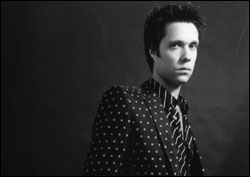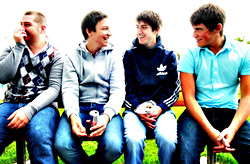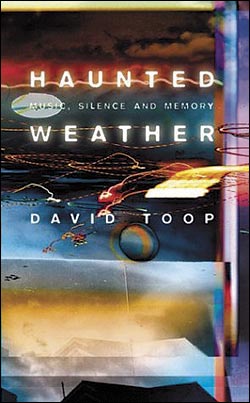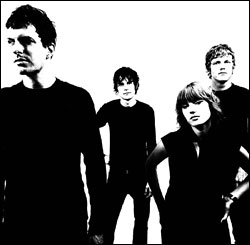Rufus Wainwright makes records the old-fashioned waywith lots of money. He doesn’t squander the lucre on drugs (quit ’em) or food (check his waistlinehe never started). Nor is he the sort of artist who sucks up six days of studio time laboriously tweaking a single bass drum tuning peg. (Insert favorite rock star studio horror story here. Hint: Andrew Eldritch and Fleetwood Mac make great starters.) He’s got people to do that for him, just as he has piano tuners, violin-repair persons, sheet music copyists, musicians. Especially musicians. String players, horn players, percussionists, harpsichordists, guitarists, vocalists, banjo pickers, mbira pluckersRufus finds a place for all and more. (The label pays for it. He owes ’em money. What could be better?) Given his passion for extraordinarily dense arrangements, it’s not hard to imagine one of Wainwright’s hapless producers, maybe even Marius DeVries, the Madonna veteran who directed control-room activities on the singer/songwriter’s latest album, Want One (Dreamworks), spending a significant portion of his time sweating all over several phone books as he makes call after call after call: “Hey, Louie, can you send over another half-dozen bassoonists right away? He just found an opening.”
“I do tend to pile it on,” Wainwright admits on the phone between shows in Montreal, with the quiet self-assurance of one certain that he could eliminate unemployment single-handedly, if only more people took up the French, er, freedom horn or viola. “I don’t always mean to. In fact, I start some songs with the express intent of keeping the arrangement pared down to the absolute essential. Then one part comes to me and another and another. Pretty soon, they’re just dripping off of everything.”
BEING A PARAGON of lushness comes with a downside. “I don’t feel that I have any direct competitors,” Wainwright confides, “which kind of saddens me. I wouldn’t mind the opportunity for a good diva hissy fit every once in a while.” But he’s not at a loss for kindred spiritsBeth Orton, for instanceor mentors, particularly Van Dyke Parks, the enigmatic recording artist, former Beach Boys collaborator, and producer/arranger of everyone from Fiona Apple to country singer Steve Young. (He has yet to add a “Z” last-named artist under his belt.) Parks’ deliciously off-kilter string arrangements for “Foolish Love,” the opening track on Wainwright’s self-titled 1998 debut, blew the rookie’s Tin Pan Alley-inspired composition up to the size of a prize- winning balloon at Macys’ Thanksgiving Day Parade. The strings also provided Wainwright with exactly the musical setting he needed to establish himself as a potential great American eccentric in a matter of minutes. Plus, he stole a bunch of Parks’ tricks.
“Actually, I owe everything to Van Dyke,” Wainwright says. “My father [folk legend Loudon Wainwright III], who didn’t even know Van Dyke all that well, gave him a copy of my demo. He listened to it and went right to Dreamworks, right to [A&R potentate] Lenny Waronker, and demanded that I get signed. He went to Lenny’s office and said, ‘This kid is inevitable.’ Working with Van Dyke is an experience not of this world. You just relax and let him do his thing, never worrying about whether it’s gonna be too much or too that, even though you know it’s gonna be too much and too that.”
Wainwright and Parks are united by more than the belief that nothing succeeds like excess. They’re both great admirers of pioneering American songwriter Stephen Foster’s handiwork, and both are irrevocably hooked on classics. While Parks’ favorite composer is 20th-century pastoralist (and one of the kinkiest dudes who ever placed an order for custom leather) Percy Grainger, he shares with Wainwright a deep and abiding love for the music of Franz Schubert, the Viennese romantic whose lieder (art songs) captivated his native Austria and, eventually, the entire world (insofar as the entire world listened to stuff by Viennese composers three turns of the century ago). Wainwright’s in a little deeper than Parks, though, having devoted his career to establishing an American lieder tradition that equals Schubert’s in depth and scope.
EVEN THOUGH EUROPEAN classicism motivates his mission, classically American traditions of pop and theatrical music inform it. Sure, Want One‘s opening track, “What a World,” steals liberally from Maurice Ravel’s Bolero (what Rufus want, Rufus takeshell, he nailed Brahms on “Foolish Love”) but only for torque and embellishment. The song’s core could easily underpin one of the big production numbers in an updated version of The Music Man, with Rufus as Professor Harold Hill in a bustling airport terminal crooning, “Men reading fashion magazines/Oh what a world it seems we live in/Straight men/Oh what a world we live in,” over a simple tuba accompaniment before the strings, tympani, and freedom horns come in. Abundant decoration aside, “What a World” is simple, its melody immediately memorable, if sneakythe kind of tune that comes into your head and lurks until just before you start to fall asleep.
Wainwright handled the arranging on “What a World,” as on much of Want One, a development he couldn’t be happier about. “Marius is the first producer I’ve worked with who’s drawn on my expertise in classical music, in opera,” he says. “Really, he’s the first who’s given me free rein. Traditionally, on the first two albums, my producers always sort of maintained this policy of containment with me.” Running wild seems to suit Wainwright. It doesn’t do Want One any harm, either. Not only is the album far more consistent than either of its predecessors, it offers the single most moving moment in Wainwright’s oeuvre to date”Dinner at Eight,” the album closer, an excruciatingly beautiful ballad about the singer’s turbulent relationship with his father. Wainwright’s piano and voice glide and surge like a river through a veritable Milky Way of ebbing and swelling strings, as he sings “Why is it so/That I’ve always been the one who must go/That I’ve always been the one told to flee/When in fact you were the one/Long ago/In the drifting, swirling white snow/Who left me.” The song might very well be the most murderously effective tearjerker to hit the home market since WHV dropped the Doctor Zhivago double DVD last yearand “Dinner at Eight” takes up a hell of a lot less time.
“I carried that song with me for a few years before I did anything with it,” Wainwright says. “It just seemed too personal, too intense, even for me. I actually even forgot about it for a while. But while we were working on Want One, it mysteriously reappeared. I feel that I have to respect something like that. Plus, I wanted to end the album with something that was both intimate and grand, which it is. This time, I wanted to leave people with a statement.”








